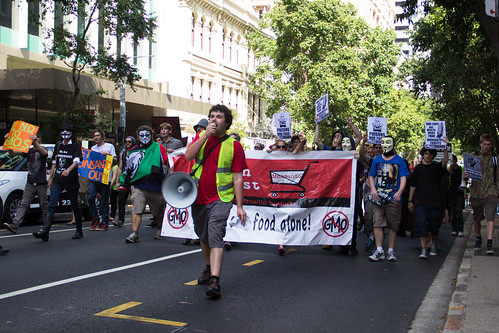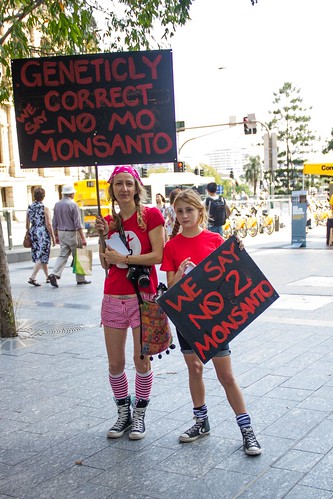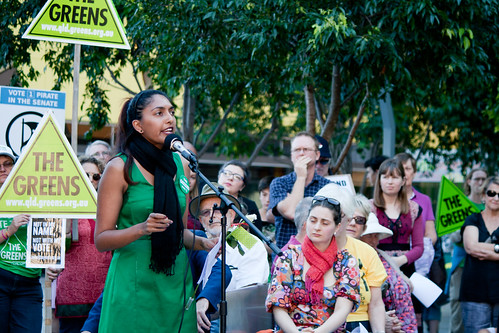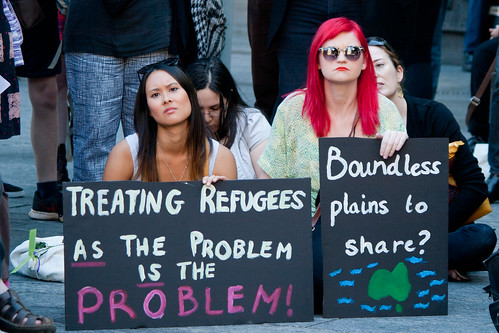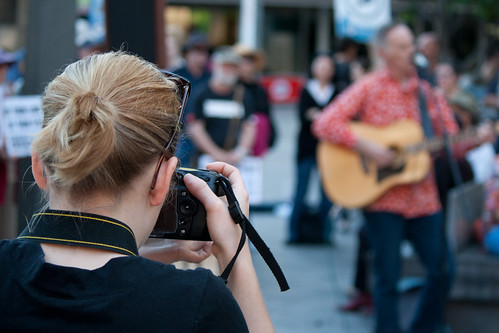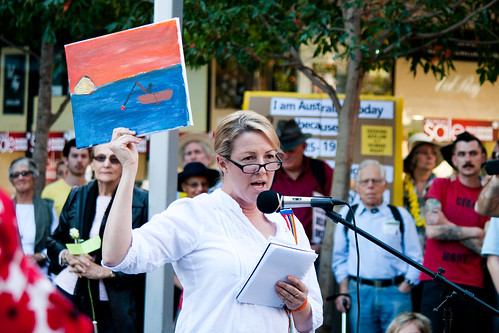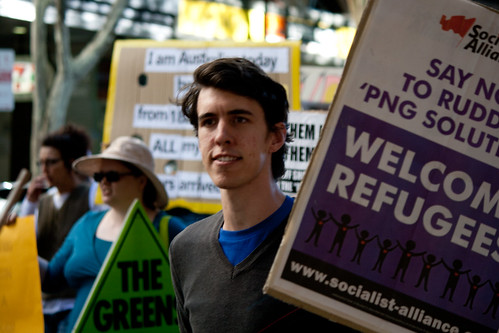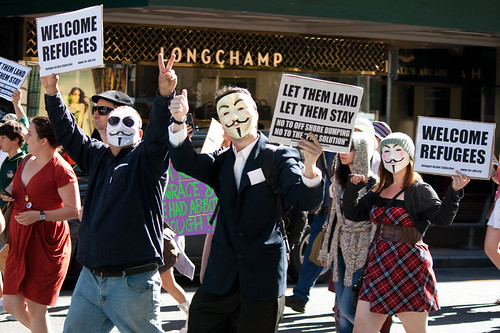How will the environment fare under Abbott? Well this is very much the sixty four thousand dollar question, but short answer; not well.

Photo Abbott courtesy MystifyMe Concert Photography
There are several factors in play. The first is whether passage of a bill to rescind the ETS will prompt a double dissolution. The second is the question of how the LNP will perform on environmental issues generally. For example will they proceed with the treatment plant for outflow proposed by Rudd for Gladstone (to protect the reef from nitrogen and other pollutants)? The second question is a bit larger in scope and will be difficult to answer in the short term.
Tony Abbott’s ‘direct action’ plain is patently inadequate. He is committing $3 billion to carbon abatement programs, which essentially amounts to planting trees and soil sequestration. The CSIRO report ‘Soil Carbon Sequestration Potential: A review for Australian agriculture’ makes the point that soil carbon storage predictions are difficult to make:
There is a strong theoretical basis partially supported by a limited number of field studies for significant SOC sequestration potential in several Australian agricultural sectors. However, a general lack of research in this area is currently preventing a more quantitative assessment of the carbon sequestration potential of agricultural
soils.
And it’s doubtful $3 billion would be able to achieve the level of abatement possible.
The other thing completely missing from Abbott’s plan is investment in renewables. While the rest of the world is investing at a breakneck speed in Solar and Wind technology, Australia is faltering. Germany just recently reached 51% home rooftop solar panels. They have a firm target for being 100% reliant on renewable energy. That includes a program of closing down all nuclear power plants by 2022. Meanwhile viable projects such as the proposed conversion of Port Augusta Coal power plant to Solar Thermal go wanting for funding. Solar and Wind technology is likely to be largely ignored by the Abbott government.
So what of the Carbon Tax and possible double dissolution? For Abbott to push his legislation through the senate he will need 39 votes. Currently, with postal votes still being counted, the senate looks like this: 25 Labor, 9 Greens, 32 Liberal, 6 independent or single issue and 4 too close to call. Of the single issue we have Nick Xenophon, Palmer United Party, Australian Motoring Enthusiasts Party (AMEP), Australian Sports Party (ASP), Liberal Democratic Party (LDP), Democratic Labor Party (DLP), and two unknowns (though looking like another Palmer, and a Nick Xenophon ally).
Palmer United state in their policy document that they strongly support an abolition of the carbon tax.
The AMEP don’t make a specific statement about the Carbon Tax. They do however list as amongst their core values low taxation, small government and minimal government intervention. They will probably try and get something from Abbott in return for their vote on ditching the Carbon Tax.
The Liberal Democratic party not only promised to support any legislation to dismantle the Carbon Tax, they also go the extra step of insisting that they will vote against Abbott’s Direct Action measures: “We wouldn’t stop him from getting rid of the carbon tax,” David Leyonhjelm said. “But when it comes to his big spending plans he may be in trouble, such as direct action on climate change and his paid parental leave – he won’t be getting any support from us.”
ASP have exactly zero information on their website about their Carbon Tax position. They are likely to use their vote as a bargaining chip to get concessions for their sporting policies.
The Democratic Labour Party is fairly conservative. They support same sex civil unions as a solution to the gay marriage issue. They have a pro-active Coal and Gas policy and support developing Australian self-reliance on Gas and Coal. Neither their energy policy nor environment policy mention anything about Carbon Tax.
Nick Xenophon has stated that he does not support the Carbon Tax in it’s current form, whether he meant as a Carbon Tax or also in it’s ETS form is unclear. He does have this on his website:
“While I would support the repeal of the current carbon tax, it must be replaced by something more efficient for the economy and more effective for the environment.”
He goes on to say he supports the system that Turnbull had proposed:
I support the model developed by leading economic think-tank Frontier Economics that I commissioned jointly in 2009 with then Liberal leader Malcolm Turnbull. This scheme rewards low-emission industries while punishing high-emission industries. It involves carrots and sticks, and unlike the Government’s scheme it doesn’t involve the massive taxing and wealth distribution associated with Government’s carbon tax.
The Frontier Economics scheme is smarter, cleaner and cheaper.
While I support the current renewable energy target, its current rules are stacked against baseload renewables such as geothermal and solar-thermal. The problem with an over reliance on wind energy (leaving aside community and noise concerns) is that its power generation is intermittent and it makes power much more expensive than it needs to be.
So far that is a clear 34 senate seats that will vote against the abolition of the Carbon Tax, and a fairly certain 38 (including DLP) who will support the abolition. If even 1 of the remaining 4 vote for abolition, then there will be no double dissolution, and no Carbon Tax/ETS.
If Xenophon decides to favour an ETS, and/or other seat counts go unexpectedly, we may yet see a hung senate on the issue of the Carbon Tax, which would force a double dissolution and potentially a new election. A new election would possibly galvanise a little extra support for Greens/Labor as voters reassess the loss of the Carbon Tax. Or it may go the other way.
Another possibility is that it won’t be the Carbon Tax that forces a dissolution but some other issue that displeases the loose alliance of independents.








